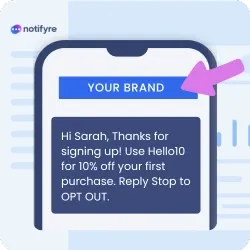Carrier Filtering
Carrier Filtering refers to the process by which mobile network providers screen and block certain SMS messages before they reach the intended recipients. This is done to prevent spam, fraudulent messages, and unwanted content from being delivered. The filtering is typically based on SMS laws within the country, the contents of the messages, the type of message (e.g., promotional, transactional) and the sender’s reputation.
How does Carrier Filtering Work?
Carrier Filtering typically includes:
Message filtering based on content, such as blocking SMS with spam-like keywords or malicious links
Sender ID verification to ensure the message is from a legitimate source
Sender reputation monitoring where messages from known spam senders are blocked
Blocking of unsolicited promotional SMS or bulk messages
Compliance with regulatory standards that prevent the distribution of illegal or harmful content
Carrier-specific filtering policies that can vary across mobile network providers
Why Carrier Filtering is Important?
Carrier Filtering is essential for maintaining the integrity and security of SMS communication. By blocking unwanted messages, it helps ensure that recipients receive only relevant, trusted messages. For businesses, it’s important as it increases message deliverability, by following best practices for SMS they can reduce, the likelihood of messages being flagged as spam, and helps avoid penalties related to unsolicited messaging. Carrier filtering ultimately helps protect consumers from harmful or unsolicited content, fostering a more trustworthy mobile messaging environment.
SMS Sender ID
Using a custom Sender ID is more than a branding tool, it's a great way to build trust with your customers.
 Explore Sender ID
Explore Sender ID